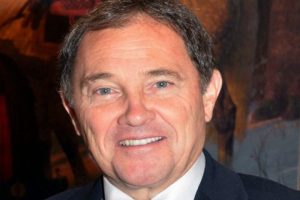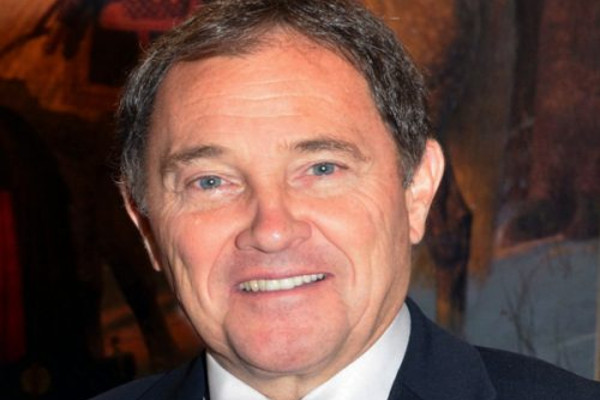 SALT LAKE CITY – “Pornography is a public health crisis. The problem is rampant, yet it thrives in secrecy and silence. Today’s bills will start an open discussion, bringing its very real dangers to light.”
SALT LAKE CITY – “Pornography is a public health crisis. The problem is rampant, yet it thrives in secrecy and silence. Today’s bills will start an open discussion, bringing its very real dangers to light.”
Those were the words of Utah Governor Gary Herbert in April 2016, when he gave a press conference to celebrate his signing of two bills, SCR 9 and HB 155.
While linked in Herbert’s statement, the two bills related to materials which were united only by having the word “pornography” in common. SCR 9 declared “pornography is a public health hazard leading to a broad spectrum of individual and public health impacts and societal harms.” HB 155, meanwhile, required “a computer technician who finds child pornography in the course of the technician’s work” to “report the finding to law enforcement or the federal Cyber Tip Line for child pornography.”
By linking the two bills, Herbert was intentionally drawing a connection between legal, presumably First Amendment-protected adult entertainment and patently illegal child pornography. Whatever bright red line may exist between the two as a matter of law, Herbert was taking a reliable page from the social conservatives’ rhetorical playbook, implicitly arguing a fundamental connection between the work of Porn Valley studios and black market child porn peddlers.
Herbert is far from the first public figure to conflate a serious crime with the act of producing adult entertainment, of course. Throughout the history of the American anti-porn movement, those who have crusaded against the creation of erotic materials have always asserted a causal connection between viewing porn and committing crimes, from sexual assault to human trafficking – even mass shootings at schools.
One possible reason anti-porn activists and politicians take this approach is that a direct frontal assault on porn – like passing a law banning its production and distribution, for example – is unlikely to survive court scrutiny. But if an anti-porn law is positioned as something other than a restriction on speech, like a measure to combat human trafficking, for example, the courts may be more receptive to it.
Of course, it’s also true that if through their hysterical rhetoric anti-porn crusaders can persuade people to believe porn is causing a “broad spectrum of individual and public health impacts and societal harms,” as Utah’s SCR 9 put it, this could also serve to create a more fertile ground for calls to censor, or at least more heavily regulate, the production and dissemination of porn.
“We believe it’s a concentrated effort to change the language around adult material, and to create the conditions for greater censorship,” Free Speech Coalition Board Chair Jeffrey Douglas said of SCR 9 and other bills like it under consideration by state legislatures around the country.
“Since the advent of the internet and the relative loss of ‘community standards,’ as a way of limiting sexual speech, anti-porners have been frustrated,” Douglas added. “Americans no longer see adult material as the failure of morals. So, we see, particularly in religious circles, an attempt to turn it into a pathological behavior — a health crisis. This isn’t supported by doctors, of course, but it helps create a sense of panic, and thus opens the door for restrictions that the general population might otherwise not find palatable.”
As Douglas sees it, resolutions like SCR 9 are a prelude, a first designed to justify subsequent legislation that will more of the heavy lifting when it comes to advancing the cause of censoring and/or restricting access to adult content.
“So, for example, in Utah, they passed the public health crisis declaration and then followed it up with legislation that would allow those who have suffered ‘damages’ from viewing adult material to sue the company that produced it,” Douglas observed. “There’s nothing remotely constitutional about it, but you can see how legislation builds on itself.”
In part because the Utah resolution others like it are nonbinding resolutions which don’t create any new law or allocate any funds, many observers have shrugged them off as purely symbolic measures designed to satisfy the voting base of socially conservative politicians. Douglas doesn’t see things the same way – especially with an administration in Washington headed by a man who has spoken openly about things like the need to “open up the libel laws.”
“With this administration, it’s not just about signaling,” Douglas said. “it’s a fundamentally distorted view of the First Amendment. The administration views any speech not supportive of the administration as ‘anti-American.’ There is no indication of sensitivity to the notion of the marketplace of ideas or the inherent value of multiple points of views. It is a matter of great concern.”












